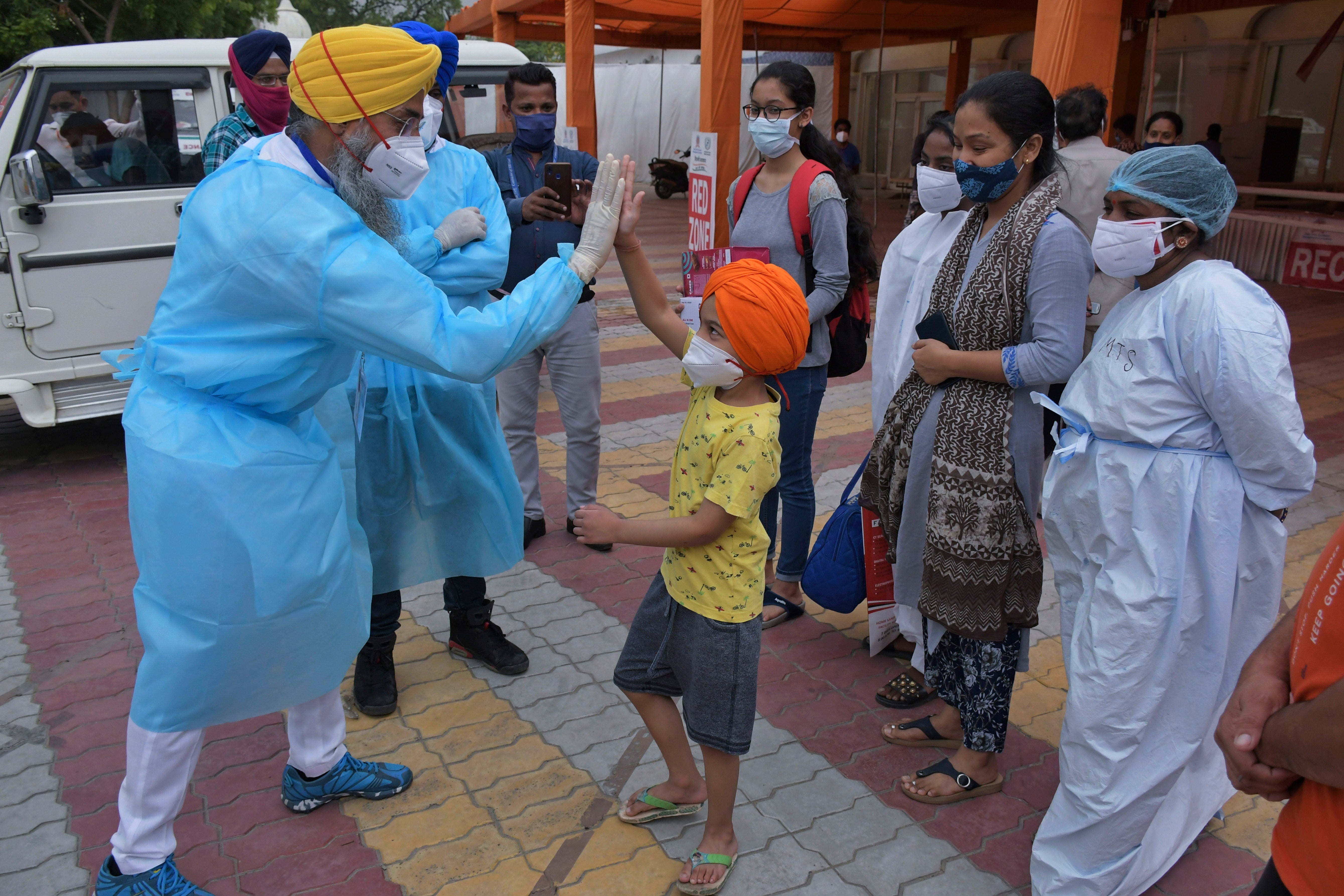India cautiously starts to open up as virus cases decline
Businesses in two of India’s largest cities are reopening as part of a phased easing of lockdown measures in several states now that the number of new coronavirus infections in the country is on a steady decline

Your support helps us to tell the story
From reproductive rights to climate change to Big Tech, The Independent is on the ground when the story is developing. Whether it's investigating the financials of Elon Musk's pro-Trump PAC or producing our latest documentary, 'The A Word', which shines a light on the American women fighting for reproductive rights, we know how important it is to parse out the facts from the messaging.
At such a critical moment in US history, we need reporters on the ground. Your donation allows us to keep sending journalists to speak to both sides of the story.
The Independent is trusted by Americans across the entire political spectrum. And unlike many other quality news outlets, we choose not to lock Americans out of our reporting and analysis with paywalls. We believe quality journalism should be available to everyone, paid for by those who can afford it.
Your support makes all the difference.Businesses in two of India s largest cities were reopening Monday as part of a phased easing of lockdown measures in several states now that the number of new coronavirus infections in the country is on a steady decline.
India's capital allowed businesses and shops to reopen with limited hours and the Delhi Metro which serves New Delhi and adjoining areas, also resumed operations at 50% capacity. Last week, authorities in the capital allowed some manufacturing and construction activity to resume.
“Now the corona situation is under control. The economy must be brought back on track,” New Delhi’s chief minister, Arvind Kejriwal told reporters on Sunday.
The strict lockdown measures had been in place since April at the start of a devastating surge in infections that lasted well into May and overwhelmed health care facilities in many parts of the country.
Some health experts fear the restrictions are being eased too soon and there are concerns that the virus is still spreading unchecked through India’s villages where testing and medical care are limited.
Kejriwal warned that any new surge in infections could be more severe and said the administration will build new oxygen-production facilities and expand the capacity of intensive-care units.
In the coastal state of Maharashtra home to the financial hub of Mumbai, and one of the worse hit states, malls, movie theaters, restaurants and offices reopened in districts where the positivity rate has fallen below 5%. The state’s huge rail network will, however, remain closed for the public.
Other Indian cities also started to gradually lift the lockdown rules.
After registering a peak of more than 400,000 new cases a day in May, new infections and deaths have declined and the government hopes the reopening could resuscitate an economy that grew at only a 1.6% annual rate in the January-March quarter
On Monday, new infections fell to their lowest point in two months.
The 100,636 cases added in the past 24 hours pushed India’s total to nearly 29 million, second only behind the United States. The Health Ministry said 2,427 more people died in the past 24 hours, driving the overall toll to 349,186. Both figures are believed to be vast undercounts.
Meanwhile, pressure is mounting on Prime Minister Narendra Modi’s government to speed up vaccinations. India has administered just over 222 million jabs so far and less than 5% of the country has been fully vaccinated.